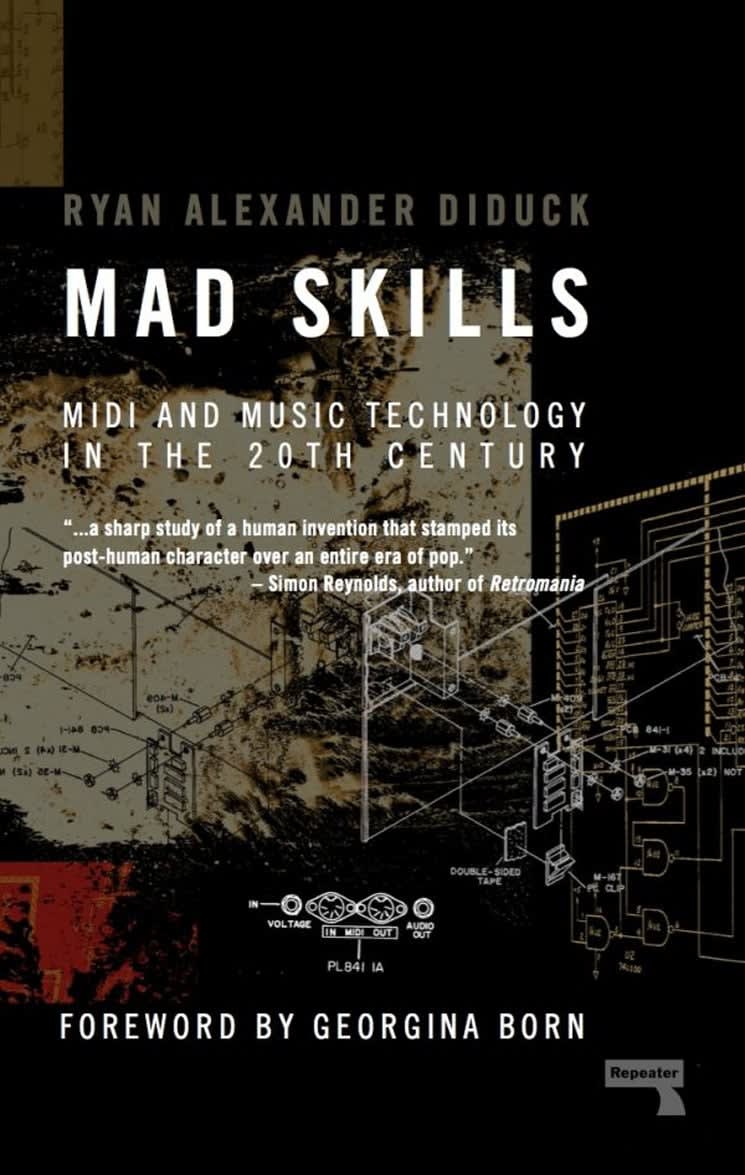The split title of this book is very telling of its overall feel: on one hand you have Mad Skills (playful old-school hip-hop terminology), and on the other, MIDI and Music in the 20th Century, which sounds far more academic. That's really the two camps that this book shuffles between. There are lighthearted anecdotes rubbing shoulders with deep sociological implications of technology on a lot of pages. It's a tad jarring, but there are certain things that Mad Skills does very well.
The history of keyboards (which includes pianos, harpsichords, clavicytheriums, and all manner of weird one-offs from the last few hundred years), and how they made their way into our homes, schools, and venues is told well by Diduck, and it really is a tale worth telling.
The story of how MIDI (Musical Instrument Digital Interface) came to be is also an interesting one. A multitude of manufacturers (often from different countries), like Roland, Korg, Yamaha, Moog etc, who were all competing with one another, somehow manage to start implementing a system that allows a user to connect all these different devices from all of these companies. It's pretty unprecedented stuff. And the whole MIDI story is incredibly well-research by Diduck.
Yet, for all the interesting tidbits, there's a mountain of tedium to bury the reader. When Diduck gets down to the nitty gritty of MIDI's adoption by all these companies, there are pages upon pages of legislative language that's probably interesting to only a very small amount of people. As MIDI rose, apparently so too did a plethora of organizations to govern or discuss it, and at points it seems like there are more acronyms to keep track of than there are keys on a piano — remembering who on earth the IMA, IRCAM, MEC, and NAMM are, when they were mentioned several pages back is damn near impossible. There's also a ton of technical jargon — if you're not familiar with terms like baud rate, analogue modulation, or even octaves and semitones, you might be left scratching your head for the latter part of the book.
Of course, this was never meant to be for the masses; it's for a niche audience, but it's a very niche one indeed. In order to fully appreciate the book, you'll need to have an interest in history, coding, capitalism, legislation, a serious love of musical gear and technology, and believe or not, sociology. In short, you kind of need to be Ryan Alexander Diduck in order to completely absorb this book. For everyone else, it comes off like a somewhat entertaining academic thesis.
(Repeater Books)The history of keyboards (which includes pianos, harpsichords, clavicytheriums, and all manner of weird one-offs from the last few hundred years), and how they made their way into our homes, schools, and venues is told well by Diduck, and it really is a tale worth telling.
The story of how MIDI (Musical Instrument Digital Interface) came to be is also an interesting one. A multitude of manufacturers (often from different countries), like Roland, Korg, Yamaha, Moog etc, who were all competing with one another, somehow manage to start implementing a system that allows a user to connect all these different devices from all of these companies. It's pretty unprecedented stuff. And the whole MIDI story is incredibly well-research by Diduck.
Yet, for all the interesting tidbits, there's a mountain of tedium to bury the reader. When Diduck gets down to the nitty gritty of MIDI's adoption by all these companies, there are pages upon pages of legislative language that's probably interesting to only a very small amount of people. As MIDI rose, apparently so too did a plethora of organizations to govern or discuss it, and at points it seems like there are more acronyms to keep track of than there are keys on a piano — remembering who on earth the IMA, IRCAM, MEC, and NAMM are, when they were mentioned several pages back is damn near impossible. There's also a ton of technical jargon — if you're not familiar with terms like baud rate, analogue modulation, or even octaves and semitones, you might be left scratching your head for the latter part of the book.
Of course, this was never meant to be for the masses; it's for a niche audience, but it's a very niche one indeed. In order to fully appreciate the book, you'll need to have an interest in history, coding, capitalism, legislation, a serious love of musical gear and technology, and believe or not, sociology. In short, you kind of need to be Ryan Alexander Diduck in order to completely absorb this book. For everyone else, it comes off like a somewhat entertaining academic thesis.
